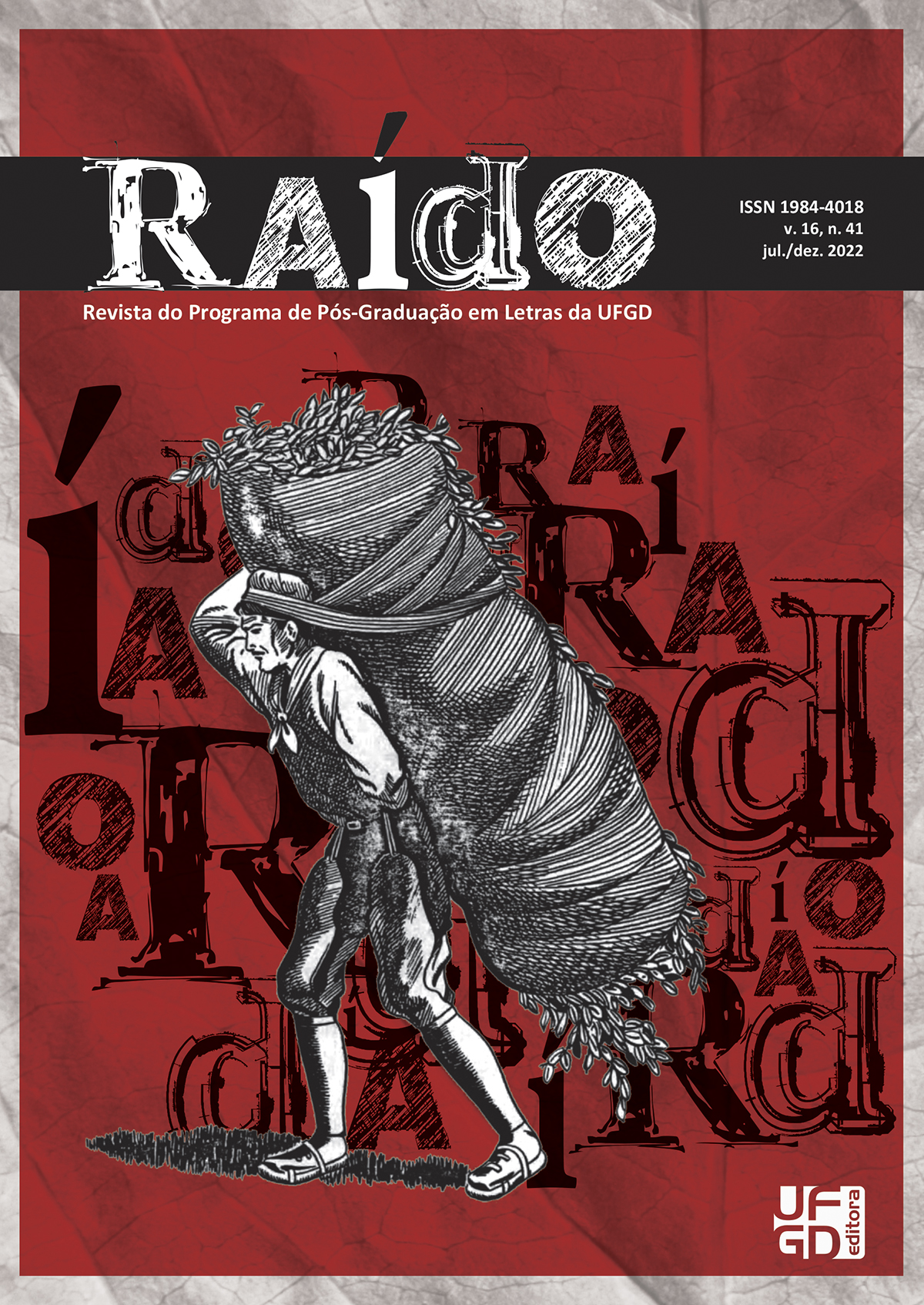“Eu pertenço a um grupo de seres malditos” das revoluções documentais e da revelação de Santiago
DOI:
https://doi.org/10.30612/raido.v16i41.15951Keywords:
João Moreira Salles, Jean Rouch, Documentário participativo, Documentário brasileiroAbstract
The present article intends to evoke the participant documentary proposed by anthropologist Jean Rouch and it investigates the influence of the participant school in Santiago (2006), work of João Moreira Salles. It also tries to comprehend how the adoption of the participative methodology was essential for Salles to edit his film after so many years of creative block. Even if he has dedicated several hours of shooting along with Santiago in 1992, a former employee of the mansion of the Moreira Salles’ family and the protagonist of the film, it is only in 2004 that the director reaches the conclusion that it would be necessary to also portrait himself as a character, in order to expose in which manner his story as a wealthy man relates to the butler. That way, Salles decides to disclose himself in the first person, admitting his mistakes and successes during the shootings. Even though the production of the documentary led Santiago to become an essential character of Brazilian cinematography, what it is scrutinized in this article are the gains on revealing the nature of the playing and, by doing that, to put in debate the ethical and political implications of the filmmaker with his camera, the hierarchical relations established between the documentarist and who is documented.
Downloads
References
BULHÕES, M. Jornalismo e literatura em convergência. São Paulo: Ática, 2007.
CALLIGARIS, C. A vida de Santiago. Folha de São Paulo. Disponível em: http://www1.folha.uol.com.br/fsp/ilustrad/fq2308200729.htm. Acesso em 03 dez. 2021.
DIOGENES, E.; VILANOVA, Isaac. Do documentário Santiago: então, a vida não tem sentido? In: XV Encontro de Psicanálise da UFC, 2011, Fortaleza. XV Encontro de Psicanálise da UFC. Fortaleza: Universidade Federal do Ceará, 2011. v. 15. p. 1-8.
LINS, C. Imagem e crença. In: LINS, Consuelo; MESQUITA, Cláudia. Filmar o real. Rio de Janeiro: Zahar, 2008.
LINS, C. Santiago, de João Moreira Salles. O documentário entre o ensaio e a autobiografia. 2009, número 3, ano IV. Revista Z. Revista de Programa Avançado de Cultura Contemporânea.
NICHOLS, B. Introdução ao documentário. Campinas, SP: Papirus, 2001.
FILMOGRAFIA DO CORPUS
NANOOK. Direção de Robert Flaherty. EUA: Les Frères Revillion; Pathé Exchange, 1922.
NO intenso agora. Direção de João Moreira Salles. Rio de Janeiro: Videofilmes, 2017.
RAMOS, Fernão Pessoa. Cinema Verdade no Brasil. In: Documentário no Brasil. Fran cisco Elinaldo Teixeira (org). São Paulo: Summus, 2004, p. 81-97.
SALLES, J M. [Debate realizado com Petra Costa e Daniela Capelato na Livraria Cultura de São Paulo em 2013]. Disponível em: https://www.youtube.com/watch?v=Vjn Zo51Blx8. Acesso em: 03 dez. 2021.
SALLES, J M. [Entrevista concedida por Armando Antenore para a Revista Bravo].Disponível em: http://bordelsemparedes.blogspot.com/2011/07/fiz-o-filme-pra-me-curar.html. Acesso em: 02 dez. 2021.
SALLES, J M. Santiago por escrito. Rio de Janeiro: Videofilmes, 2009.
SANTIAGO. Direção de João Moreira Salles. Rio de Janeiro: Videofilmes, 2006.
ÚLTIMAS conversas. Direção de Eduardo Coutinho. Rio de Janeiro: Videofilmes, 2015
Downloads
Published
How to Cite
Issue
Section
License
Os autores devem aceitar as normas de publicação ao submeterem a revista, bem como, concordam com os seguintes termos:
(a) O Conselho Editorial se reserva ao direito de efetuar, nos originais, alterações da Língua portuguesa para se manter o padrão culto da língua, respeitando, porém, o estilo dos autores.
(b) Autores mantém os direitos autorais e concedem à revista o direito de primeira publicação, com o trabalho simultaneamente licenciado sob a Atribuição-NãoComercial-CompartilhaIgual 3.0 Brasil (CC BY-NC-SA 3.0 BR) que permite: Compartilhar — copiar e redistribuir o material em qualquer suporte ou formato e Adaptar — remixar, transformar, e criar a partir do material. A CC BY-NC-SA 3.0 BR considera os termos seguintes:
- Atribuição — Você deve dar o crédito apropriado, prover um link para a licença e indicar se mudanças foram feitas. Você deve fazê-lo em qualquer circunstância razoável, mas de nenhuma maneira que sugira que o licenciante apoia você ou o seu uso.
- NãoComercial — Você não pode usar o material para fins comerciais.
- CompartilhaIgual — Se você remixar, transformar, ou criar a partir do material, tem de distribuir as suas contribuições sob a mesma licença que o original.
- Sem restrições adicionais — Você não pode aplicar termos jurídicos ou medidas de caráter tecnológico que restrinjam legalmente outros de fazerem algo que a licença permita.



